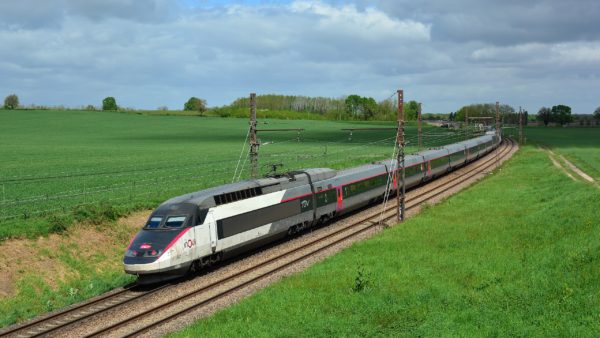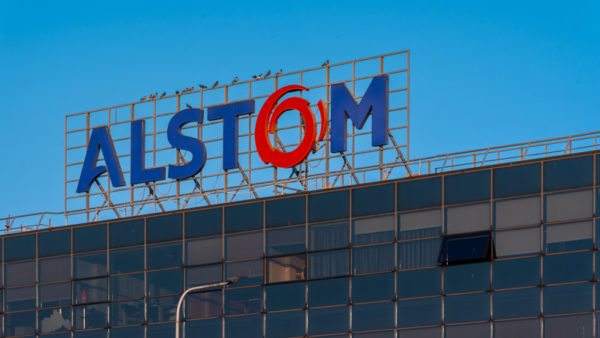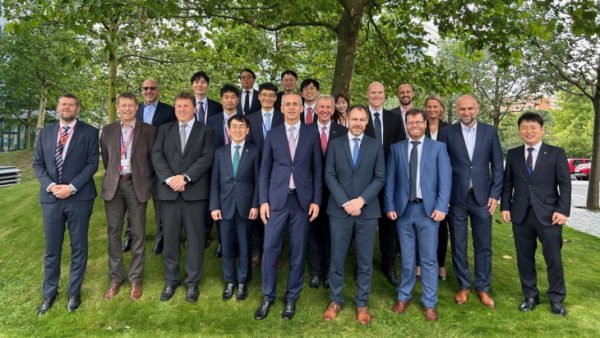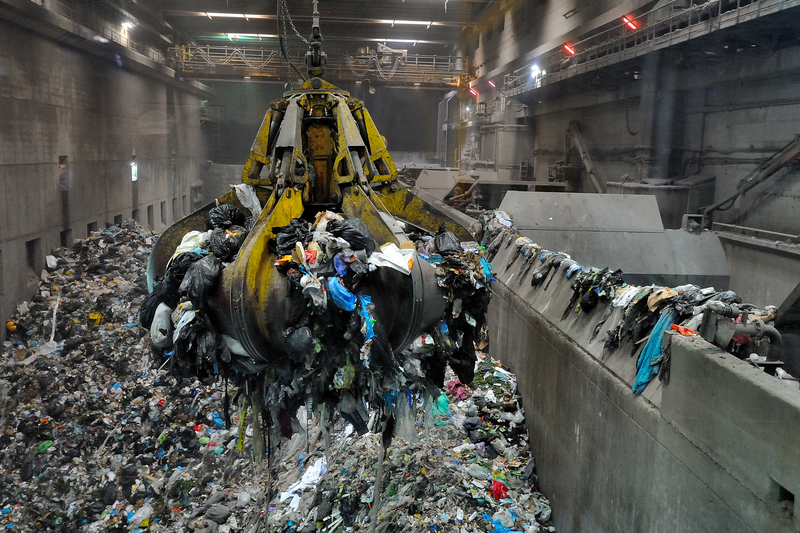
State-owned Swedish energy company Vattenfall has announced plans to supply homes in London with low and zero-carbon heat from solid waste plants.
Vattenfall, which runs district heating schemes in Berlin, Uppsala and Amsterdam, serving some 1.9 million people, said its network could eventually serve more than half a million homes across the east of London.
It has teamed up with London-based waste management company Cory Energy, which is planning a district heating system powered by a waste-to-energy plant in Belvedere, in the south east of the city.
This project was awarded £12m from the UK’s Heat Networks Investment Project (HNIP) and is set to start on site in early 2022 with the aim of supplying the first homes by 2024.
A second waste-fuelled plant, which will be built beside the first at Cory’s Riverside Energy Park, will be added later. This received planning permission in April 2020.
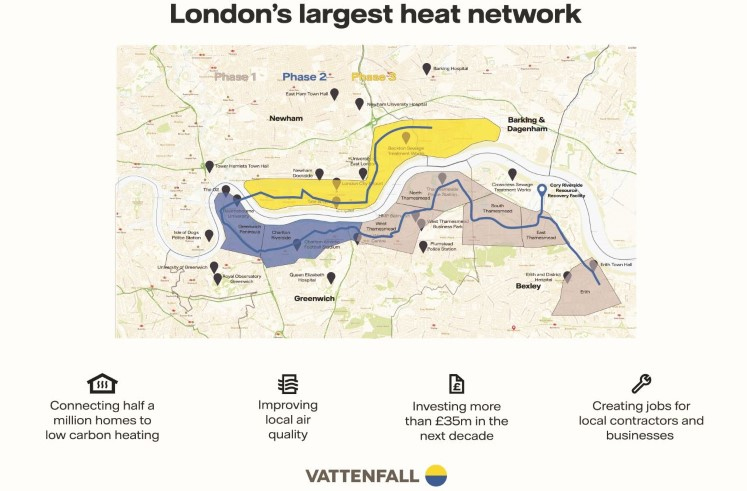
By the 2030s, Vattenfall hopes to be servicing 75,000 homes, and half a million homes and businesses by the 2040s.
The company noted that heating is responsible for a third of UK greenhouse gas emissions and that more than 25 million homes use fossil fuels to keep warm.
Vattenfall says its heat network, which would be the largest in the UK, could reduce emissions by up to 90% compared with the individual gas boilers that are the country’s mainstay. It estimates that over a 20-year period, the network could save 26 million tonnes of carbon dioxide emissions.
Mike Reynolds, managing director at Vattenfall Heat UK said: “We’ve got to think big when it comes to removing emissions from heating, on a scale that works for global cities like London. District heating presents the best option for consumers in urban areas. It’s the cheapest source of low-carbon heat, it’s reliable and it’s resilient against energy shocks.
“Most of London’s 3.5 million homes, and thousands of commercial buildings, are heated using fossil fuels. Yet there are abundant other sources of cleaner heat, such as the ground, water or waste heat from industrial processes”
Dougie Sutherland, chief executive of Cory, said: “Our heat network project with Vattenfall is a prime example of how a collaboration can help the UK to address an urgent issue – the decarbonisation of heat.”
Further reading:





